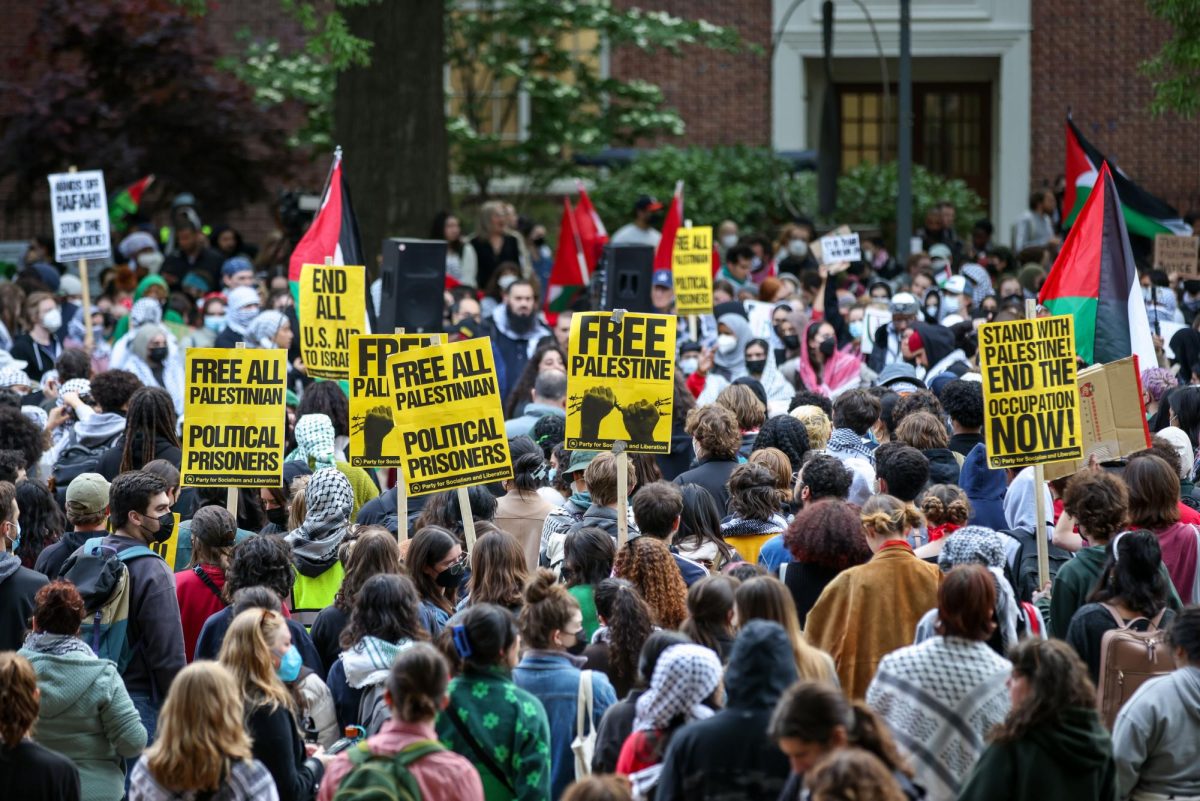
No institution of higher education is immune to cheating – even on a large scale, and even at what has been called man’s greatest university.
The cheating scandal at Harvard University has dominated the national conversation about higher education since it broke this August and has raised several questions about the prevalence and nature of cheating on college campuses.
There, 125 students are under investigation for unauthorized collaboration on a take-home final from last spring in an Introduction to Congress course. If proved, this will be the largest-scale cheating occurrence at an Ivy League university in recent memory.
Sometimes, cheating is as obvious as answers scrawled on the back of a hand or copying and pasting excerpts from published sources. But more often, it’s a murky infraction, ranging from misunderstood instructions to unapproved collaboration.
There’s no doubt that academic cheating is reprehensible. But the events being investigated at Harvard show us that it isn’t always black and white, and there’s a lot GW can learn from the incident – especially as its curriculum increasingly stresses collaborative learning.
But to begin, let’s look at the numbers.
Two-thirds of college students have admitted to “cheating on tests, homework and assignments,” according to a 2011 study of more than 14,000 undergraduate students by International Center for Academic Integrity co-founder Donald McCabe. And the biggest predictor of cheating is knowing someone else who cheated, according to a 2009 study by the American Psychological Association.
So most students cheat, and knowing someone who cheats makes you more likely to do the same. It’s a catch-22 that is tough to police and tough to beat.
GW has a modified honor code, which means students are dealt consequences based on the nature of their infractions. The Office of Academic Integrity is separate from the judicial arm of the University, and a hybrid of students and faculty determine what consequences students receive.
Under the University’s modified honor code, Harvard students being investigated for “unauthorized collaboration” would likely only receive a failing grade on the assignment, Director of the Office of Academic Integrity Tim Terpstra said.
Fortunately, the University is willing to acknowledge the existence of cheating on campuses with its modified honor code and its dedication to case-by-case consequences – a laudable position compared to that of Harvard, which has no codified set of infractions and penalties when it comes to academic integrity.
But as GW continues to push collaborative learning and online education, it must better prepare for the dangers that accompany group work. Professors can’t just explain the academic honesty policy as a cursory aside during syllabus week – expectations for each assignment should be outlined for students.
Can students work with each other when studying but not when completing a take-home test? Are they prohibited from turning in the same answers, but still permitted to share sources with each other? Tell them.
And professors shouldn’t just be clear about what is and is not authorized for an assignment to justify their consequences, but instead to defend the student from infractions. Students should, without confusion, be able to point to the guidelines and how they met them.
In addition, longer-term projects should have checkpoints throughout the semester to keep students from plagiarizing in an eleventh-hour effort to finish a big assignment. We all procrastinate, but breaking up assignments can thwart that threat.
And as in the case of Harvard’s cheating incident, huge lectures lead students to believe they can get away with it. So much of that mentality stems from students’ apathy toward large lectures, compared with their engagement in small seminars and classes. While professors teaching courses with hundreds of students can’t check in with each one, making syllabi, lectures and projects as engaging and clear as possible could help curb cheating in big classes.
The truth is that it’s tempting to cheat, especially when work is diffused in a group, allowed to be done at home or assigned over a long period of time. And whether we like it or not, cheating happens – a lot. It’s naive to think one code or strategy can be the silver-bullet solution to this issue.
Students today are spread thin and overworked. Expectations are tremendous. We have to get the grades, have extracurriculars, excel at internships, maintain a social life and attempt to get a job straight out of college.
Succumbing to cheating – especially milder forms of it – isn’t just something that students do because they know they can get past the professor. It’s something they do to get by.
So while cheating is an egregious offense, particularly in the world of academia where there is no greater good than truth, there are more factors at play than the face value of a stolen excerpt or shared answer.
It’s heartening to see that the Office of Academic Integrity understands that. But the culture that remains so often tempts students to cheat because it’s easy and there’s so much more to get done.
And until that culture is reversed, everything else is just a short-term solution to an issue that plagues even the most revered of campuses.
Annu Subramanian, a senior majoring in journalism, is the former Hatchet opinions editor.





